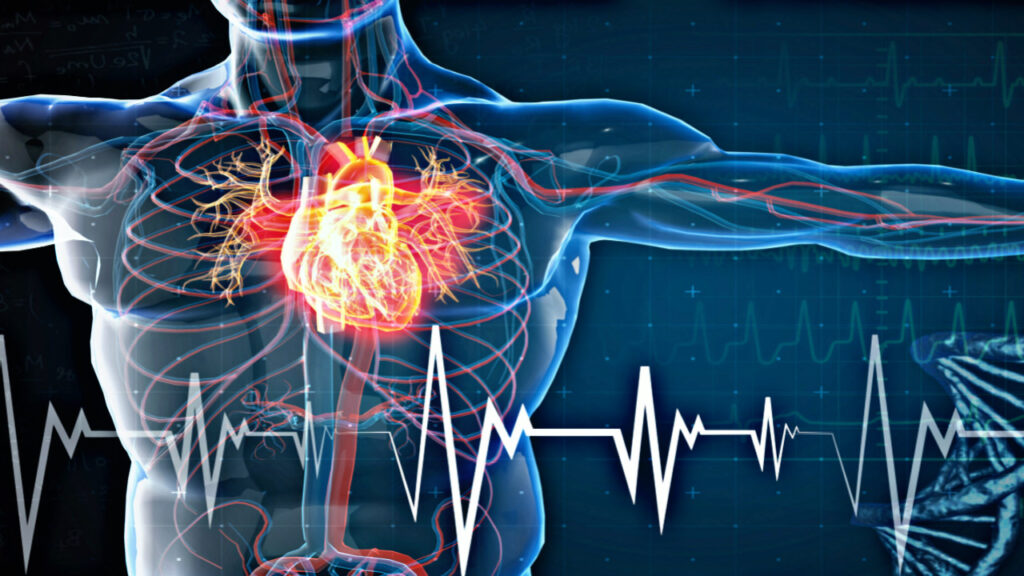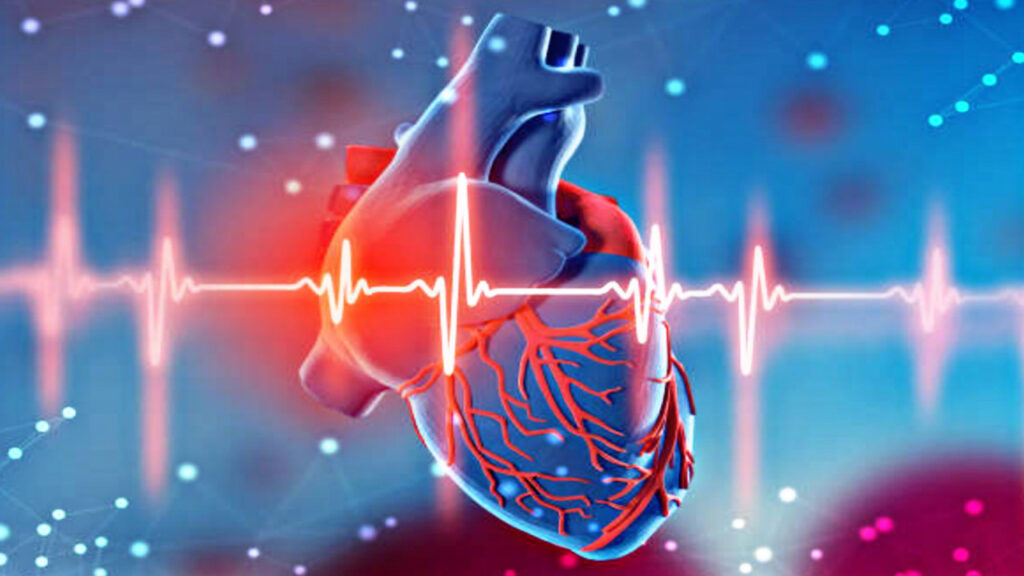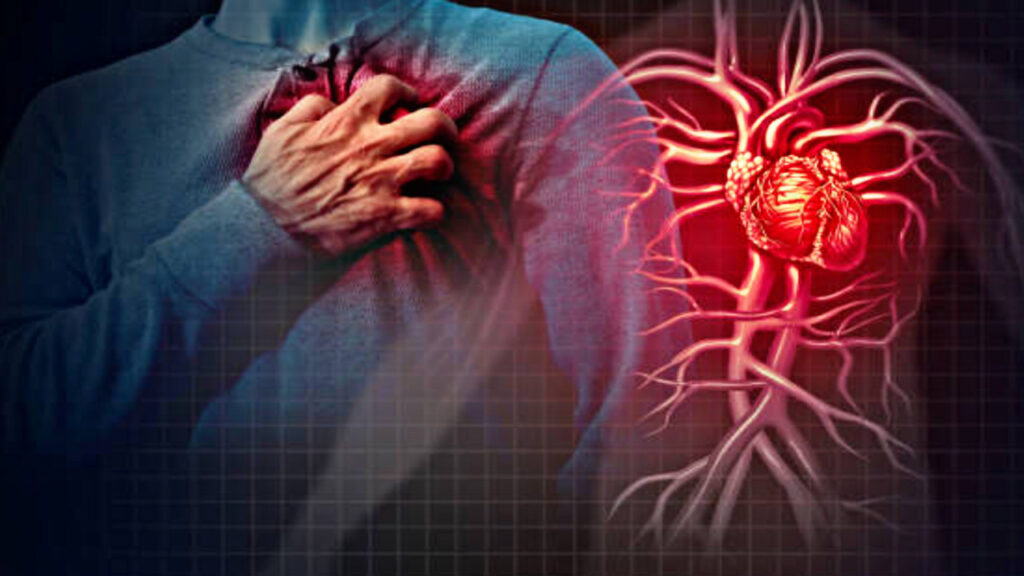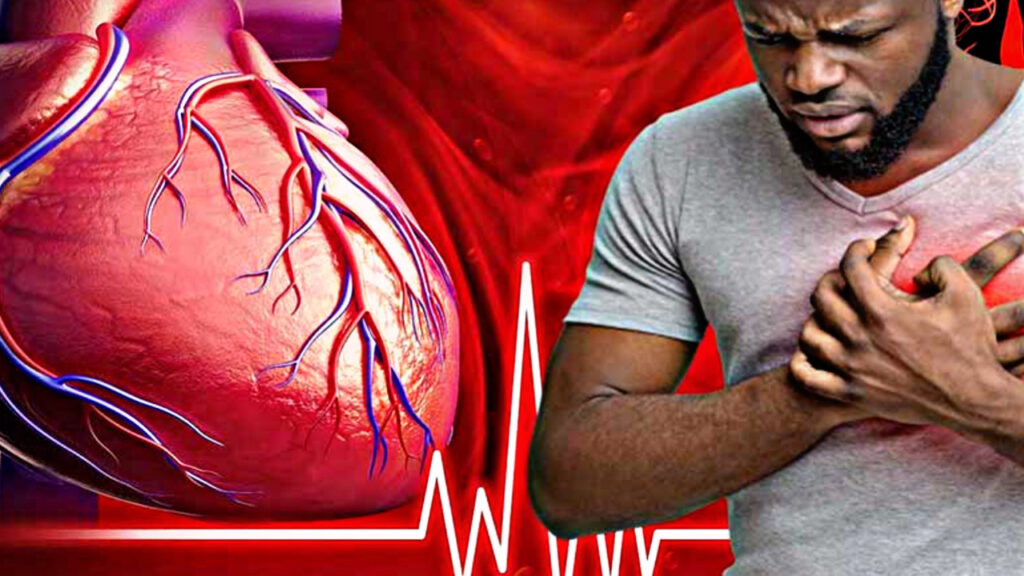Health
A heart attack, medically known as a myocardial infarction, is a life-threatening event that occurs when the flow of blood to the heart muscle is blocked. While many people associate heart attacks with sudden, severe chest pain or discomfort, the truth is that the warning signs of a heart attack can show up much earlier sometimes even 10 to 12 years before the actual event occurs. These early warning signs are subtle and easy to overlook, which is why it’s crucial to be aware of them and take them seriously. Early recognition can lead to timely medical intervention, reducing the chances of a heart attack and improving overall heart health.

Early Warning Signs of Heart Disease

- Chest Discomfort and Pain
Chest pain is the most common symptom associated with heart problems. However, it often appears much before a heart attack. A mild but persistent discomfort in the chest or a feeling of tightness can signal the presence of heart disease. This discomfort can radiate to other parts of the body, including the arms, jaw, or back. - Fatigue and Weakness
Unexplained fatigue or tiredness, particularly during physical activity, is another early sign. You might feel more exhausted than usual, even after minimal exertion. This feeling of weakness can be related to the heart’s inability to pump blood effectively, indicating a potential cardiovascular problem. - Shortness of Breath
Difficulty breathing, especially during exercise or even at rest, can be an alarming early warning sign. When the heart struggles to supply enough oxygenated blood throughout the body, the lungs and other organs are affected. Persistent shortness of breath may indicate heart disease or related issues. - Swelling in Legs and Ankles
Fluid retention in the lower extremities, such as swelling in the feet, ankles, or legs, can be a sign of heart failure or reduced heart function. When the heart is unable to pump blood efficiently, it can cause fluid buildup in the body, leading to swelling in these areas. - Dizziness or Lightheadedness
Feeling dizzy or lightheaded, especially when standing up quickly or during physical activity, can be an indication of poor blood circulation, which often results from heart disease. This happens when the heart can’t pump enough blood to supply oxygen to the brain and other organs. - Irregular Heartbeat
If you frequently experience an irregular or abnormal heartbeat (arrhythmia), it could be a sign of an underlying heart condition. This irregularity may be accompanied by palpitations or a fluttering sensation in the chest, both of which need immediate medical attention. - Sleep Disturbances
Trouble falling asleep or staying asleep may also be a subtle sign of heart disease. Many people with early-stage heart conditions experience disturbed sleep, which could be related to poor circulation, breathing difficulties, or anxiety related to their heart health. - Nausea and Indigestion
While not often associated with heart problems, persistent nausea, indigestion, or a feeling of fullness can be a symptom of a heart condition, especially in women. This can occur due to poor blood flow to the digestive system or general discomfort caused by heart disease.
Why You Should Never Ignore These Symptoms
Ignoring these early signs can significantly increase the risk of a heart attack. Heart disease develops gradually, and by the time a heart attack occurs, it can often be too late to reverse the damage. Early detection allows for lifestyle changes, medication, and preventive measures to reduce the risk of a heart attack.

Take Charge of Your Heart Health
Recognizing the early signs of heart disease is the first step toward protecting your heart. Regular checkups, a healthy diet, exercise, stress management, and avoiding smoking can significantly reduce the risk of heart-related problems. If you experience any of the warning signs mentioned above, it’s essential to consult with a healthcare provider as soon as possible.
In conclusion, a heart attack doesn’t happen overnight; it often comes after years of warning signs that should never be ignored. By staying vigilant and taking proactive steps toward heart health, you can protect yourself and ensure a healthier future.





